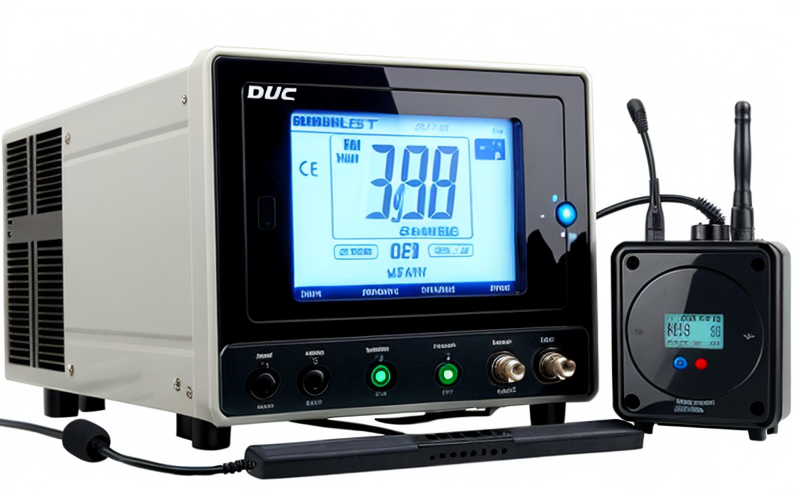BS EN 301 893 RF Testing for UK Wi-Fi Networks
The BS EN 301 893 standard is a crucial requirement for manufacturers and suppliers of wireless communication devices operating in the European Union, including the United Kingdom. This regulation ensures that all equipment complies with electromagnetic compatibility (EMC) requirements to prevent interference between different radio services within the region.
For UK Wi-Fi networks, compliance with BS EN 301 893 is essential for manufacturers aiming to sell their products in the UK market. This standard defines the characteristics of radio equipment that ensures interoperability and coexistence among different devices operating on the same frequency bands, such as 2.4 GHz and 5 GHz bands commonly used by Wi-Fi networks.
The testing process involves several steps to ensure compliance with the standards set out in BS EN 301 893. These include:
- Interference Testing: Ensuring that the device does not cause harmful interference to other radio services within its operating frequency range.
- Immunity Testing: Verifying that the device is protected against electromagnetic interference and can operate correctly in a specified electromagnetic environment.
- Emission Testing: Confirming that the device does not emit harmful levels of electromagnetic radiation that could interfere with other devices operating on similar frequency bands.
Understanding the specific requirements for UK Wi-Fi networks under BS EN 301 893 is critical for any manufacturer or supplier. The standard specifies limits and conditions for emissions, immunity, and coexistence to ensure that devices can operate safely and effectively within the specified frequency bands without causing interference.
The testing process typically involves a series of experiments designed to simulate real-world conditions under which the device might be used. This includes laboratory-based tests as well as field trials where the device is tested in actual deployment environments. The aim is to ensure that the product meets all relevant standards and can perform reliably across different scenarios.
For R&D engineers, compliance with BS EN 301 893 is particularly important for developing new products or enhancing existing ones to meet market demands. By adhering to these standards, manufacturers can anticipate regulatory approval more efficiently and avoid costly delays in bringing their products to market.
The standard also plays a vital role in quality management by providing a framework that ensures consistent product performance across different production batches. This is especially important for suppliers who need to ensure that all units meet the stringent requirements set by BS EN 301 893 before they are released into the market.
In summary, compliance with BS EN 301 893 is not just a regulatory requirement but also an essential step in ensuring product quality and reliability. It helps manufacturers produce devices that can operate effectively and safely within the UK's complex radio environment while maintaining high standards of interoperability and coexistence.
Applied Standards
The BS EN 301 893 standard is part of a broader set of regulations governing wireless communication devices in the European Union. This includes other relevant standards such as:
- BS EN 300 440: Specification and measurement procedures for radio wave propagation data.
- ISO/IEC 17845: General technical requirements for the interoperability of digital broadcasting systems.
The application of these standards ensures that devices meet not only national but also international best practices, enhancing their performance and reliability in various operating conditions. Compliance with these standards is mandatory for manufacturers seeking to sell products within the EU market, including the UK.
Industry Applications
- Consumer Electronics: Ensures that consumer devices like smart home appliances and entertainment systems operate without causing or receiving harmful interference.
- Telecommunications Providers: Guarantees that network infrastructure can coexist with other wireless services, enhancing overall system performance.
- Healthcare Devices: Protects medical equipment from electromagnetic interference, ensuring patient safety and accurate diagnosis.
Eurolab Advantages
At Eurolab, we provide comprehensive testing solutions tailored to the BS EN 301 893 standard. Our expertise in RF and wireless communication testing ensures that our clients can confidently meet all regulatory requirements for their products.
We offer a range of services including:
- Compliance Testing: Ensures that your product meets the specific requirements set out by BS EN 301 893.
- Type Approval: Provides a certification process to confirm compliance with all applicable standards.
- Pre-shipment Testing: Conducts tests on products before they are shipped, ensuring that they meet the necessary standards and can be sold legally in the UK market.
Our state-of-the-art facilities and experienced technical team ensure that your product is tested under realistic conditions, providing you with reliable and accurate results. This not only helps in meeting regulatory requirements but also enhances the quality and reliability of your products.





